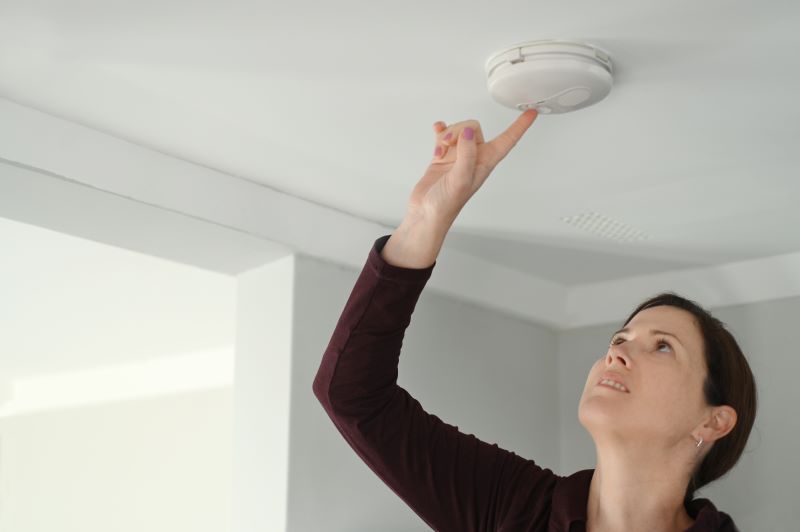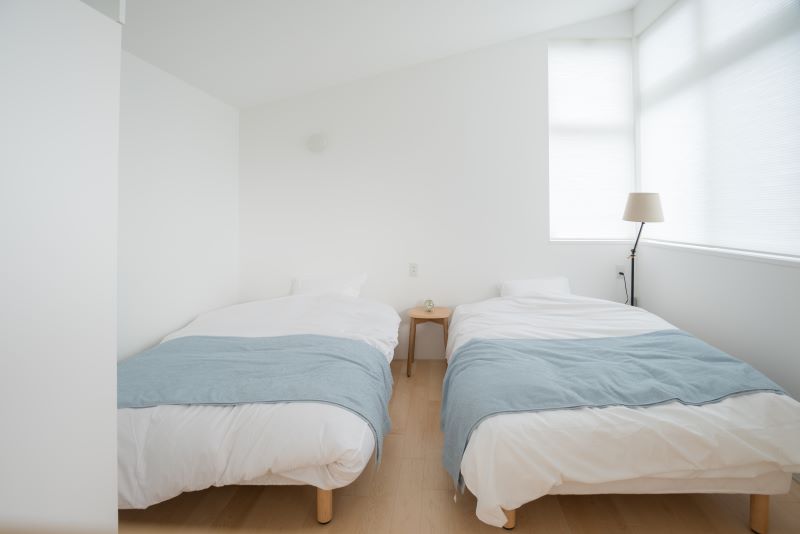
As a landlord in Boston, property inspections are vital to the proper functioning of your rental property. You can’t avoid this important aspect of the job or you will end up losing money both short and long-term. While inspections aren’t always the most comfortable experience, they are necessary to: ensure renter safety and lease compliance, discover damages, find deferred maintenance, and create a smooth transition upon tenant move in or move out.
But when can you perform a rental inspection? Have you thought about the optimum way of notifying the tenants you are coming for a visit? It is important to let your tenants know of your inspection plans before you just walk into the apartment. In some cases, it is illegal to enter the property without following certain guidelines.

Come to an Agreement With Your Tenants- in Writing
It is absolutely critical that renters and landlords agree on the grounds of a property inspection and how the Boston apartment inspection will occur. This needs to be put in writing on the lease agreement and discussed with the tenant prior to signing. It is very common for landlords to set up quarterly walk-throughs to discuss any damages versus wear and tear. College students can be very hard on properties and it’s important to explain various matters to them so you have a well-functioning relationship. You don’t want to let wear and tear turn into damage because of unchecked behaviors or habits.
There are also largely overlooked matters, such as pointing out obvious things to keep the lease in compliance. For example, making sure bikes are not left in common hallways so tenants don’t cause a safety hazard in the event of a fire. Many tenants seem to feel that storing things on the stairs becomes a right after time. If you establish early, and often, that storing items in common area hallways or stairs will not be permitted under any circumstance then you will have a better long-term relationship. There are literally hundreds of things to point out. You have to keep communication high both over the phone and in documented emails to tenants and demand a response that they acknowledge that you have zero tolerance for safety issue violations. A good property manager or experienced owner is very valuable in helping tenants understand overall best tenant practices for the health and safety of everyone who resides in the building.
Now that you’ve agreed with your tenant on when and why you can perform an inspection, let’s take a look at what you should inspect!
Here are a few common types of property inspections performed by a landlord:

Move-in Inspections
In a perfect world, you are at the property as your current tenant moves out and before the new one moves in. However, this is not always a viable option; especially when you own multiple Boston apartments and most tenants move out on 9/1. Do the best that you can with the time frames that you have. Prioritize your schedule and first go to the properties that you believe have the most potential issues. This will allow you to put things in motion and set up the right expectations should your new tenants show up early. Take copious pictures and short videos. When a new tenant moves in, it’s also wise to document any damage that occurs upon move in. Make sure these pictures have timestamps. This can go a long way in protecting you. Take pictures of the flooring/carpet, interior walls, cabinetry, appliances, fixtures and windows. You will also want to take exterior pictures of the yard as tenants often overfill barrels and leave trash in the yard which can lead to fines from the city.
One of the most common complaints from landlords is that tenants make often make small dents on refrigerators and it is costly to replace those doors. There is also a long wait time to get new doors and they are quite pricey. Many times landlords simply decide to throw the refrigerator out since the price can be nearly similar to buying new. The other thing that a ton of property owners complain about is tenants bringing furniture in and scratching common area hallways and hardwood floors. It is always a good idea to let tenants know that real holes, dents and scratches are not considered wear and tear.
Take Your Time
Don’t rush through your inspections. Be sure to take a picture of anything you see that could be damaged by the tenant during their lease. Without these, you’ll have a harder time justifying the money needed for repairs when the tenant moves out. You’ll need solid proof of the condition of the damaged goods prior to the move in. It’s very fruitful to have upfront discussions with your leaving tenants about damage. Often times they will quickly volunteer to either fix it or try to get quotes to help out in it’s remediation. Doing walk throughs a month before move out with the existing tenant can go a long way in getting things fixed before the new tenant moves in and saves time and money for both the parties.

Move-out Inspections
The landlord is allowed to perform multiple property inspections with reasonable notice provided to the tenant. Here’s where those pictures you took will come in handy. If anything appears out of order, you can use these pictures to compare the unit’s condition when the tenant moved in. This is invaluable when it comes to resolving disputes, or in worst case scenarios, proving your case in a court of law.
Be sure to communicate this inspection when the tenant moves in to the Boston apartment. That way they come to expect the move-out inspection, and they may be more careful to take care of the apartment. During routine rental inspections many tenants will often admit they have caused some damage. When they talk with you it is often better to work together and get it resolved quickly. It’s always a good idea to have one of the tenants available for the rental inspection as it builds trust. It is significantly harder to avoid telling the truth when both parties are staring at the damage. At that point the conversation shifts to how to resolve the issue and get the best pricing possible.

Routine Maintenance Checks
If you plan on conducting routine maintenance checks of your rental unit, make sure this is agreed upon at the beginning of the lease and is in writing. Not all tenants will be comfortable with this, and you may lose a few prospective tenants who may not want to be bothered. Hold your ground because it is the best path for you and your property. Be Leary of any tenants that are not open to having inspections. You might want to think what could they be hiding? Boston is a highly competitive city with an extremely low vacancy rate, so it’s OK to hold out for tenants that will take care of your Boston apartment.
During your inspections make sure to check for any potential safety or fire hazards in the units. Test all of the fire alarms, smoke detectors, and carbon monoxide detectors in the apartment. Check the ceilings, walls and attic for any signs of mold, mildew or water leaks coming in to the home. Test all of the appliances and check the bathroom fixtures to ensure everything is working and sealed properly.

Checking for Unauthorized Tenants or Other Lease Violations
As a landlord in Massachusetts, you do have the ability to obtain a court order for an inspection if you have reasonable evidence that a tenant is violating the lease agreement. One of the most common lease violations is unauthorized tenants living on the premises. There is also the issue of college students moving in more people than what was signed on the lease. Horror stories abound where landlord’s show up to a property where they thought they X amount of people but discover one or two more people. Boston has one of the highest sub-letting or roommate turnover percentages in the country. Greater Boston has a vast amount of colleges and co-ops. In a nutshell, students are highly mobile and transient during college for many reasons too numerous to list. What is important is that you work with your tenants so that all parties come out on top.
Unauthorized tenants are occupants of the rental who live there without legal tenancy. Your rental contract should specify who is entitled to live on the property as well as how long houseguests may stay. This will help eliminate any uncertainty or confusion. Common unauthorized tenants include:
- significant others that have moved in
- overstaying family members
- unauthorized subletting
Even if you define in your lease that you may perform an inspection with reasonable evidence of a lease violation, you will still need a plan on how to handle it in a winning manner. Many landlords put additional fees for each bed discovered at the property. It is quite common to see an additional charge of anywhere from $300-$600 per month for each bed discovered. This offsets some of the additional wear and tear as well as water use etc.
Outsource it to the Property Management Pros
With Boston real estate and tenant laws often being vague, conflicting and outdated, it is important you formulate a plan of success. Many landlords develop a knowledgeable team on their side to prevent any potential headaches. Landlords often have enough to deal with on a daily and monthly basis that sometimes they find it much easier to outsource the more cumbersome tasks such as property inspections to the experts in property management. You should also align yourself with apartment leasing experts that know when to properly set lease renewal notification dates that best coincide with highest web traffic periods.
Never be afraid to ask for help.
Being a landlord can be a tough business. Join landlord groups and/or work with real estate companies that have a long history of renting thousands of properties. Leading real estate offices with extensive experience often have a huge knowledge base to provide. Great property management companies often align themselves with the best apartment leasing companies so they get the highest rents coupled with the best tenants. Should you decide to go the route of hiring a property manager, ask them about their vacancy policy. The best property management companies out there have a zero vacancy policy. One of the best ways to have great inspections is to get the right tenants to move in that will treat your Boston apartment as if they owned it themselves. Utilizing a market leader in apartment leasing will give you the best shot at your property being shown the most so you have a much better probability of better quality tenants.
Demetrios Salpoglou
Published November 27, 2023
Demetrios has pulled together the largest apartment leasing team in the Greater Boston Area and is responsible for procuring more apartment rentals than anyone in New England – with over 130k people finding their housing through his services. Demetrios is an avid real estate developer, peak performance trainer, educator, guest lecturer and motivational speaker.





